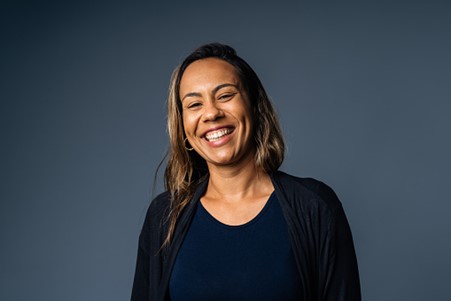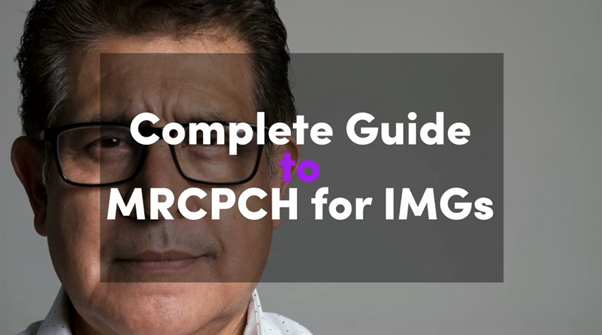
What to Expect from the MRCP SCE Exam in Medical Oncology
08 Apr, 202412 Minutes
Are you training to become an oncologist in the UK? Or are you planning to relocate to the UK and train your way up? If so, you may come across the MRCP SCE examinations.
MRCP SCE is a speciality certificate examination assessed by the Royal College of Physicians that most NHS doctors take towards the end of their training. You can take this exam in eleven specialities, one of which is Medical Oncology.
In this guide, you’ll learn specifically about the SCE in Medical Oncology examination, including its purpose, cost, eligibility criteria, and some useful tips on passing.
MRCP SCE in Medical Oncology: Why is it Necessary?
If you are training to become a medical oncologist in the UK and want to apply for specialist positions, you will need to complete the MRCP SCE examination in medical oncology to get your Certificate of Completion of Training (CCT). This postgraduate qualification proves you have the knowledge, skills, and expertise to join the specialist register and work independently as a medical oncologist.
From the standpoint of the Royal College of Physicians, the MRCP SCE examinations are essential as they ensure all specialist doctors are trained to the same high standard. The official MRCPUK website clearly states that the purpose is to “ensure that certified specialists have sufficient knowledge of their specialty to practice safely and competently as consultants”. As a result, patients in NHS hospitals and clinics receive a higher quality level of care, and public confidence in medical oncologists soar.
See the MRCP SCE exam as an essential final building block to your career as a medical oncologist. It’s the final exam you need to take before climbing the ladder to a higher-paying, specialised position.
It’s important to note that the SCE isn’t just for MRCP holders or UK trainees. For Medical Oncologists who haven’t taken the MRCP route to their GMC registration and have gone via PLAB or even the EU pathway, the SCE examination is still a fantastic way to showcase your skills and make an NHS job application stand out.
When Do You Take Medical Oncology SCE?
If you’re working or training in the UK, you would usually take MRCP(UK) during your ST/CT 1-2 years. The MRCP SCE exams would then be taken during your years in medical oncology speciality training, from ST4 to ST6. Generally, the later in specialist training you take them, the better, as you’ll have more experience and knowledge to help you pass the examinations.
That said, given there are no specific entry requirements for the MRCP SCE, you are free to take the SCE whenever you feel ready to do so.
Eligibility Requirements for Medical Oncology SCE
There are zero specific entry requirements for applying for the MRCP SCE, including the Medical Oncology SCE. However, the Royal College of Physicians recommends that you take the exams once you’re near the end of your higher speciality training, usually in your penultimate year. It’s also recommended that you have already passed the MRCP(UK) examinations.
The Cost of Medical Oncology SCE
The cost of the Medical Oncology SCE examinations is as follows:
- In UK Centres: £700
- In International Centres: £875
- In ESEGH/ESENeph Full Member, Associate Member, and Observer Countries: €800
As you can see, taking the examinations internationally is slightly more expensive than sitting them in the UK. Remember that these costs may increase each year, so you may need to pay more if you apply from 2025 onwards.
Where Can You Take the Exams?
You can take the exam either in the UK (at VUE centres) or internationally. There are 137 UK test centres to choose from, so there will likely be one near you. In terms of international test centres, the regions/locations depend on the candidates. The exact test centre will be emailed to candidates three weeks before the exam date.
Medical Oncology SCE: Examination Structure
The Medical Oncology SCE exam takes place on a computer at a testing site (which is found in the UK and internationally). The exam itself has two parts, both having 100 best-of-five questions. Candidates have three hours per section, so there are six hours in total for the exam (usually with a break in the middle).
In terms of actual exam content, it covers a wide range of topics. There are a set number of questions per topic, as you can see here:
- Breast Cancer: 14 questions
- Colorectal and Anal Cancer: 14 questions
- Lung and Thoracic Cancer: 14 questions
- Carcinoma of Unknown Origin: 7 questions
- Ovarian Cancer: 7 questions
- Oesophagogastric Cancer: 6 questions
- Lymphoma: 3 questions
- Uterine Cancer: 3 questions
- Hepatobiliary Cancer: 5 questions
- Skin Cancer: 5 questions
- Sarcoma: 5 questions
- Leukaemia: 1 question
- Prostate Cancer: 3 questions
- Urothelial Cancer: 3 questions
- Cervical Cancer: 3 questions
- Head and Neck Cancer: 2 questions
- CNS Cancer: 2 questions
- Renal Cell Cancer: 3 questions
- Endocrine Cancer: 2 questions
- Scientific Basis of Malignancy: 18 questions
- Professional Skills: 14 questions
- Acute Oncology: 20 questions
- Clinical Research, Ethics, and Economics: 8 questions
- Systemic Anticancer Therapy: 18 questions
- Supportive Therapies and Palliative Care: 10 questions
- Standard Operating Procedures: 3 questions
In total, there are 200 questions for the Medical Oncology SCE exams.

When and How to Apply for MRCP SCE
First, you must know when you can apply. If you go onto the MRCP(UK) website and select the medical oncology specialty, you’ll find the application windows for upcoming SCE examinations. You can do that here. For example, the next exam date for SCE in medical oncology is 11th September 2024, and the application window is from 22nd May – 19th June 2024.
Good news: applying is very simple. First, you’ll need to ensure you have a My MRCP(UK) account. Then, go to the upcoming exams section on My MRCP(UK). You can select the Medical Oncology SCE exam you want to take and apply to sit it (there will be various testing locations to choose from) and then pay the examination fee. You should receive an email with a confirmation of your place.
What to Expect on the Day
On the day, you’ll be expected to show up at least thirty minutes before the start of the exam. Once there, you’ll enter the test centre, show your necessary ID/documents, and be shown where to put your personal belongings (which you cannot take into the examination room). Then, the exam starts – you get three hours per paper with a break in the middle, so it’s a full day of work.
What’s the Pass Mark for MRCP SCE?
The passing mark for the Medical Oncology SCE exam changes each year and is determined before candidates take the examination.
The marking system is extremely rigorous and is handled by a Standard Setting Group. They take into account a range of information to determine the passing mark, including the difficulty of the questions and the expected level of knowledge from the candidates. It’s important to note that there was a change to the marking system back in September 2020 to standardise the marking by using test equating rather than the previously used Angoff and Hofstee methods.
In terms of how the examinations are marked, candidates get awarded 1 mark for a correct answer, 0 marks for an incorrect answer, and 0 marks for an unanswered answer. As there is no negative marking, it makes sense for all candidates to give an answer to every question, as there’s a chance they will get it right.
Receiving Your Results
Results are always given via email around four weeks after you have taken the exam. It’s understandable for candidates to be eager to receive their results, but there’s no other way to get hold of your exam results during that time, so it’s important to wait.
How to Increase Your Chances of Passing Medical Oncology SCE
Preparing for the Medical Oncology SCE exam can be a little overwhelming. As it’s such an important part of your training and career—and essential to completing your CCT—you will undoubtedly want to pass the very first time. Here are some tips on how to do just that.
Apply at the Right Time
Before anything else, applying for your Medical Oncology SCE at the best time in your career is important. As an oncologist in training, you have plenty of time to complete your SCE exam before getting your CCT, so don’t rush it. It’s always recommended that you apply nearer the end of your training, as, that way, you’ll have built enough knowledge and gained enough experience. It means you’re far more likely to pass the first time, which is what you want!
Know the Curriculum Through and Through
It’s imperative that you familiarise yourself with the medical oncology curriculum so that you understand the purpose of the examinations as well as the subjects they cover. You can find the curriculum for medical oncology training (which was implemented in August 2021) here. Getting to grips with the curriculum will give you a major advantage in the exam room.
Take Mock Exams
One of the best ways to prepare for a specific examination is by taking mock exams. These will help you get to grips with the question format and the time you have to complete the exam. The more mock exams you take, the better.
Find the Right Study Resources
Of course, not all studying can be done through actual training; you’ll also want to spend some time working through textbooks to strengthen your knowledge in weaker areas. For this, you’ll need to find the best study resources depending on your speciality (more on that next).
Look Through the Results Report
Each year, a metrics report is released for the Medical Oncology SCE examinations from the previous year. This is exceptionally helpful for doctors who are soon to take the exam, as the data will make you more informed about things like the pass rate and the overall standards for the examination. You can find the results report from 2023 here. There, you’ll discover some useful metrics; for example, it shows that, in 2022, 100% of candidates passed the exam when taking it in their ST6 year, compared to a 95% pass rate from candidates taking it during their ST5 year. There are more detailed metrics, too, including the percentage of correct answers for each specific topic (such as endocrine cancer and standard operating procedures).
Throw Yourself into Work
Truly, the best way to prepare for Medical Oncology SCE is to make the most of your day-to-day training. That means learning as much as you can throughout the workday – taking notes is a good idea. Also, attend as many multi-disciplinary meetings as possible, as the wider the knowledge/experience you have, the more chance you’ll be able to answer every question. It’s all about experience.

Tips for Passing on the Day
Even if you spend years throwing yourself into work, taking notes, and learning from your experiences, use these tips to pass your Medical Oncology SCE exam and qualify to become a specialist doctor.
Get there Early
The last thing you want is to enter the SCE test centre late and flushed. Not only may it make you more nervous about taking the exam, but there’s also a chance you won’t be able to take it altogether, which is a definite failure.
Be Well Rested
You don’t want a bad day to ruin your chance of passing the Medical Oncology SCE examination. So, look after yourself before walking into the examination room. Most importantly, get plenty of rest before the exam (don’t stay up all night cramming!) and eat a good breakfast. Little things like this make a world of difference to your mentality and, in turn, your overall efforts.
Pace Yourself
Your goal is to answer every single question (remember - no negative marking). That means you must spend only the appropriate amount of time on each question; don’t waste too many minutes staring at one that you don’t know how to answer! You can always go back to it later.
Answer Easy Questions First
You don’t have to answer the questions in any particular order, so the best way to tackle the exam is to answer the easy questions first. That way, you secure those marks and can keep the later part of the exam for taking on the more challenging questions.
What Happens if You Don’t Pass?
It’s not the end of the world. While you will understandably be disappointed if you fail your Medical Oncology SCE exam, you have up to six attempts, so you can always try again. If you did fail, try to understand the reasoning behind it (perhaps you didn’t pace yourself correctly), and then try to fix that before applying for the next exam. Use it as inspiration to boost your knowledge and experience.
What Happens if You Do Pass?
Passing is a major victory, so first, congratulate yourself! The Medical Oncology SCE examinations are designed to be challenging. They are there to ensure every specialist oncologist is held to the same high standard level. By passing, you show you have what it takes to get on the specialist register and work independently in your medical field.
After passing your SCE exam, the most obvious thing is to use it to get your Certificate of Completion of Training (CCT). Then, with this, you’ll be able to apply for specialist roles in medical oncology, which means having more responsibilities and earning more money.
In Summary
The Medical Oncology SCE examinations are crucial for getting your CCT, getting on the specialist register, and working as a senior medical oncologist in the UK. Familiarising yourself with the exam marking system, structure, and curriculum will help prepare you for this rigorous exam, allowing you to reach the next step in your oncology career.
Do you have any more questions about the Medical Oncology SCE Exam? Perhaps you’re unsure if you need to take them as an international medical graduate. If so, you can contact the helpful team at BDI Resourcing. We specialise in helping international students get on the right track to becoming UK doctors, so we are sure to be of assistance!


